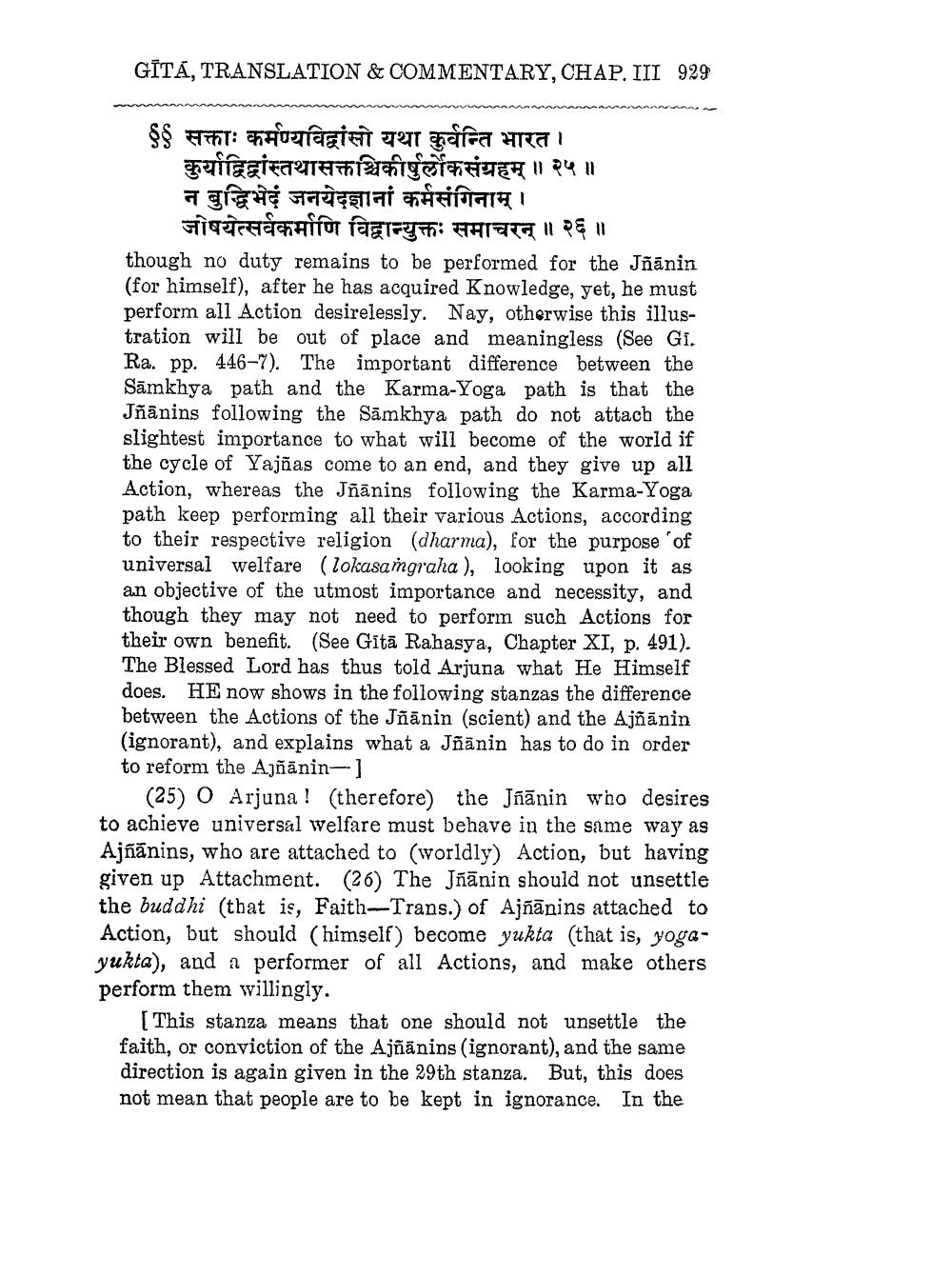________________
GĪTÁ, TRANSLATION & COMMENTARY, CHAP. III 929
$$ सक्ताः कर्मण्यविद्वांसो यथा कुर्वन्ति भारत।
कुर्याद्विद्वांस्तथासक्तश्चिकीर्षुर्लोकसंग्रहम् ॥ २५ ॥ न बुद्धिभेदं जनयेदज्ञानां कर्मसंगिनाम् ।
जोषयेत्सर्वकर्माणि विद्वान्युक्तः समाचरन् ॥ २६ ॥ though no duty remains to be performed for the Jñānin (for himself), after he has acquired Knowledge, yet, he must perform all Action desirelessly. Nay, otherwise this illustration will be out of place and meaningless (See Gi. Ra. pp. 446–7). The important difference between the Sāmkhya path and the Karma-Yoga path is that the Jñānins following the Sāmkhya path do not attach the slightest importance to what will become of the world if the cycle of Yajñas come to an end, and they give up all Action, whereas the Jñanins following the Karma-Yoga path keep performing all their various Actions, according to their respective religion (dharma), for the purpose of universal welfare (lokasamgraha), looking upon it as an objective of the utmost importance and necessity, and though they may not need to perform such Actions for their own benefit. (See Gītā Rahasya, Chapter XI, p. 491). The Blessed Lord has thus told Arjuna what He Himself does. HE now shows in the following stanzas the difference between the Actions of the Jñānin (scient) and the Ajñānin (ignorant), and explains what a Jñānin has to do in order to reform the Ajñānin-]
(25) O Arjuna! (therefore the Jñtānin who desires to achieve universal welfare must behave in the same way as Ajñānins, who are attached to (worldly) Action, but having given up Attachment. (26) The Jñānin should not unsettle the buddhi (that is, Faith-Trans.) of Ajñānins attached to Action, but should (himself) become yukta (that is, yogayukta), and a performer of all Actions, and make others perform them willingly.
(This stanza means that one should not unsettle the faith, or conviction of the Ajñānins (ignorant), and the same direction is again given in the 29th stanza. But, this does not mean that people are to be kept in ignorance. In the




